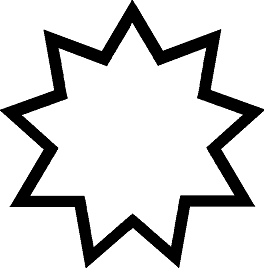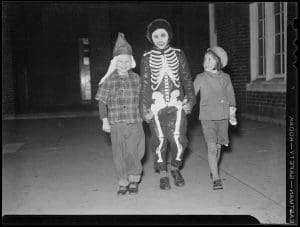This is a new blog series we're doing on religious and cultural holidays/celebrations that are commonly celebrated in Massachusetts to help create awareness for these traditions and their origins. If there's a particular religion or celebration you or someone you know participates in that doesn't appear on this list, let us know by leaving a comment on this post. Or, if you think we got something wrong, please also comment and let us know. We try to be as accurate as possible, but if there's a mistake, we want to correct it.
October 26, 2022* - Birth of the Báb
The Baha'i Faith is one of the most recently established religions to date. The Badí’ Calendar, adopted in 2015, is a calendar of celebrations that those who practice Baha'i follow. It is a solar calendar with 19 months of 19 days. Each calendar totals 361 days, with the addition of “Intercalary Days” to adjust the calendar to the solar year. The days and months are named after the attributes of God.
Many followers of the Baha'i faith celebrate the Birth of the Báb. They believe the Báb helped awaken people to a new period in human history. The Báb, which translates to 'the gate', was born Siyyid 'Ali-Muhammad on October 20, 1819 in what was then Shiraz, Persia, now Iran. He was a prophet and a leader of the Bahá'í revelation who was often likened to John the Baptist. He encouraged people to purify themselves for the coming of the messenger of God.
The Báb announced that he was creating a new tradition and gained eighteen followers who helped spread his message throughout Persia. However, other religious leaders saw him as a heretic and the Báb was eventually executed by a firing squad in 1850. His followers hid his remains for more than half a century and then moved them to an elaborate shrine in Haifa, Israel.
The day of the Birth of the Báb begins with prayers and devotional readings. It continues with a festive social gathering either at home or in a place of worship. In keeping with the essence of Bahá'í, the celebrations are open to all.
To learn more about the Baha'i Faith you can check out these books:
A Concise Encyclopedia of the Baha'i Faith
An Introduction to the Baha'i Faith
*Please note that the date is moveable and it has been updated for the year 2022.
October 31, 2018 - Halloween
The earliest origins of Halloween comes from the Celtic festival Samhain (pronounced sow-en). This holiday marked the Celtic New Year, and the end of summer. It also signaled the beginning of winter, which they associated with death. On this day, the Celts believed the spirits of those who recently died came back to earth. The Celts lit a bonfire and danced around it to keep evil spirits away. They also wore costumes. They believed evil spirits of the dead would find a body to possess for the upcoming year. Villagers could avoid becoming possessed by dressing in costumes as witches, ghosts, and other scary figures. They may have worn costumes to scare away the evil spirits. Another idea is that the costumes helped the wearers blend in with spirits.
When European immigrants came to the United States in the 1800s, they brought those traditions with them. Irish and English immigrants used to go to houses and ask for food or money. This was the original trick-or-treat. Communities also had Halloween parties, which included games, seasonal food, and costumes. Later, leaders encouraged parents to remove frightening parts of the celebration. As as a result, Halloween lost most of its original meaning. It became a community celebration for children.
The baby boom of the 1950s caused Halloween to move into classrooms and homes. To keep Halloween as a community event, Americans revived trick-or-treating. This time, trick-or-treating involved candy instead of money or food. Families believed they could stop local kids from vandalizing their houses by offering kids a treat on Halloween. Today, Americans spend about $6 billion each year on Halloween. Halloween candy purchases make up one fourth of all candy sold in the United States.
To learn more about the history and traditions of Halloween check out these items:




Add a comment to: The Origins and Practices of Holidays: Birth of the Báb and Halloween